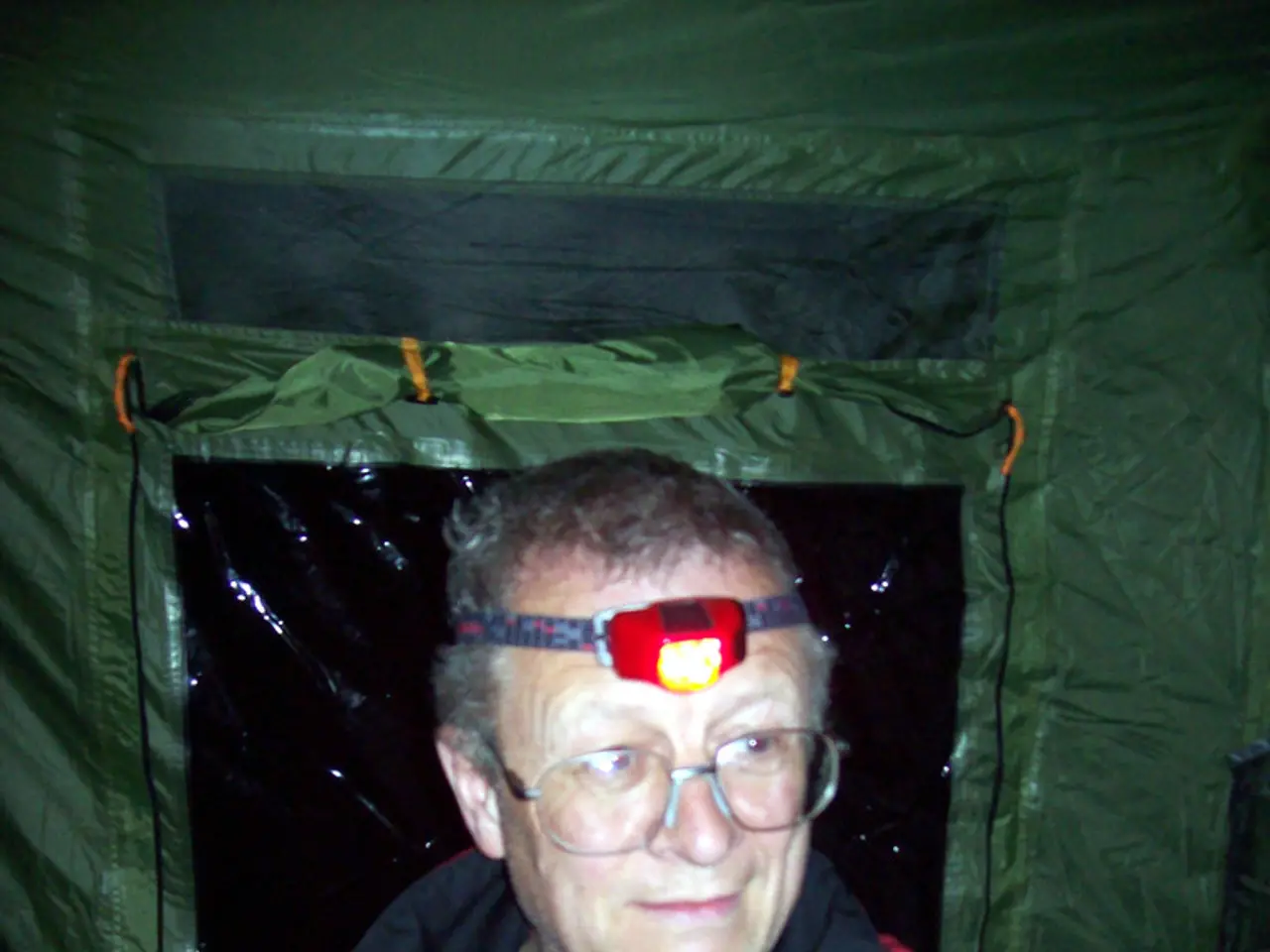High temperatures of 30 degrees and more: Guidelines and details on the heat resource website
A Word on Keeping Cool in Scorching Weather: A Safety Guide
Staying cool and protected during hot weather is crucial for everyone, but it's particularly important for the elderly, kids, and those with pre-existing conditions. These vulnerable groups require extra care to ward off heat-related illnesses and sun damage.
Here are some essential tips to help manage the heat safely:
Sun Protection
- Cover Up: Opt for clothing with a UPF rating of 50+ to block harmful UV rays. This includes long-sleeve shirts, wide-brim hats, and leggings made of special fabrics designed to shield skin from sunlight.
- SPF Up: Apply sunscreen with SPF 15 or higher that blocks both UVA and UVB rays to prevent sunburn and skin damage. Don't forget to reapply as needed during prolonged outdoor activities.
- Shade Out: Stay in shaded areas as much as possible, avoid direct sun exposure during peak midday hours, and use umbrellas or canopies when outside. For indoor protection, close curtains or blinds when the sun hits windows to reduce indoor heat and UV exposure.
Staying Hydrated
- Drink Adequately: Those with pre-existing conditions and the elderly may not feel thirsty as strongly. Regularly drink more water than you think you need to stay hydrated, and ask caregivers to remind and assist with hydration.
- Fluid Breaks: For children and those with limited communication ability, caregivers should regularly offer water and monitor intake to prevent dehydration and falls.
- Medication Check: Some medications can increase sensitivity to heat or degrade at high temperatures. Consult healthcare providers about medication management during heat waves.
Cooling Down Indoors
- Air Conditioning: Use air conditioning or fans to maintain cooler indoor temperatures, especially for vulnerable populations.
- Heat-free Appliances: Refrain from using heat-generating appliances like ovens, dryers, or irons during hot weather to avoid adding to indoor heat.
- Social Support: Regularly check on elderly adults, children, and those with health conditions, especially if they live alone. Arrange visits or trips to air-conditioned places or offer transportation to cooler locations by car.
- Light Clothing: Wear lightweight, loose-fitting clothing made of breathable materials to help manage body temperature and allow for airflow.
Adopting these tailored strategies will help vulnerable groups manage the risks associated with hot weather more effectively. Consistent hydration, effective sun protection, and maintaining a cool environment are essential preventive measures to staying healthy during the hot seasons.
- In addition to these precautions, science also emphasizes the importance of workplace-wellness programs for managing heat-related risks, especially for individuals with medical-conditions or chronic-diseases.
- People with respiratory-conditions, such as asthma or COPD, should carry their rescue inhalers and avoid outdoor activities during poor air quality days.
- For digestive-health, it's crucial to maintain proper hydration, as dehydration can worsen digestive issues and lead to heat-related illnesses.
- Eye-health can be affected by UV rays and dry heat, so donning sunglasses with UV protection and preserving indoor moisture with humidifiers is advisable.
- People with hearing impairments may have difficulty perceiving extreme weather warnings, making it essential to have backup communication plans and check on them regularly during hot weather.
- As for health-and-wellness, everyone should prioritize fitness-and-exercise, as regular physical activity promotes overall health and boosts immune systems, which can help manage autoimmune-disorders.
- Mental-health is also impacted by weather, and the stress of hot weather can exacerbate symptoms, so it's crucial to engage in relaxation techniques like meditation or breathing exercises.
- Mens-health issues such as heart disease and hypertension can be worsened by heat, making it essential for men to manage their cardiovascular-health through diet, exercise, and regular checkups.
- Skin-care is equally important--sunburns and excessive UV exposure can increase the risk of various skin-conditions, including cancer. Regular moisturizing and sun protection practices are essential.
- Therapies-and-treatments such as cold compresses, showers, or baths can help lower body temperature when cooling off indoors.
- While hydration is crucial, nutrition plays a vital role as well--staying hydrated and maintaining a balanced diet rich in fruits, vegetables, and lean proteins can help reduce the risk of heat-related illnesses and aging-related health issues.
- Lastly, women's-health should also consider the impacts of hot weather on womens-health issues like pregnancy, menopause, and neurological-disorders, like migraines, which can be exacerbated by extreme temperatures. Regular communication with healthcare providers is crucial.







